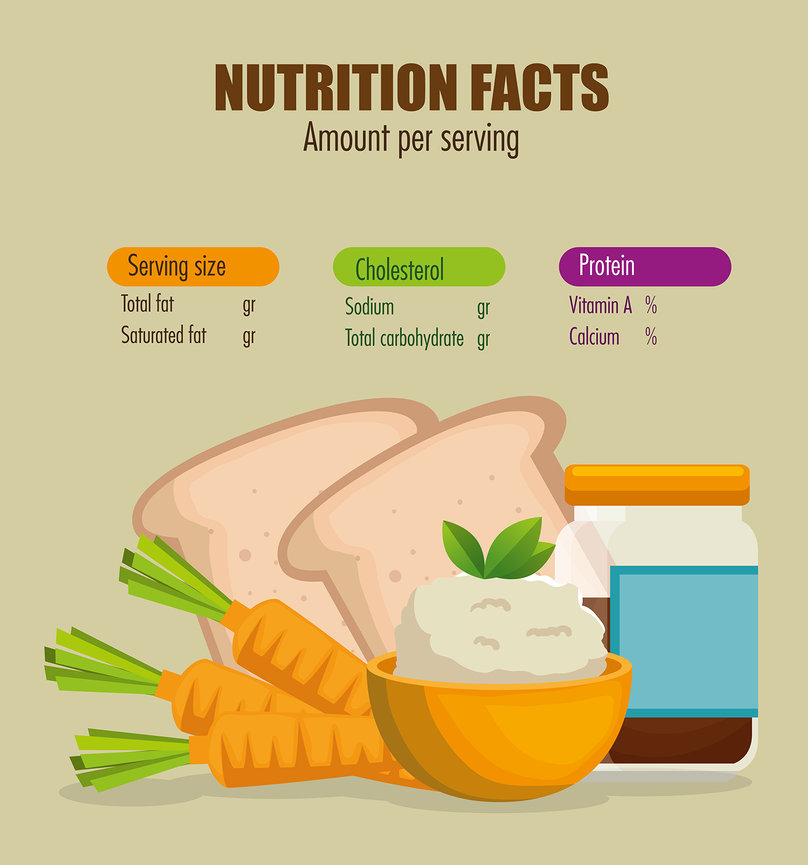Nutritional Strategies For Endurance Athletes
Endurance athletes push their bodies to the limits, requiring not only physical training but also meticulous attention to nutrition. Proper nutrition plays a pivotal role in optimizing performance, supporting recovery, and sustaining energy levels during prolonged activities. In this article, we explore key nutritional strategies tailored for endurance athletes.
Jan 18, 202429K Shares518.6K Views

Endurance athletes push their bodies to the limits, requiring not only physical training but also meticulous attention to nutrition. Proper nutrition plays a pivotal role in optimizing performance, supporting recovery, and sustaining energy levels during prolonged activities. In this article, we explore key nutritional strategiestailored for endurance athletes.
Fueling Before Endurance Activities
Fueling before endurance activities is a critical component of an athlete's preparation, influencing performance and sustaining energy levels throughout the event. This phase of nutrition is specifically tailored to optimize glycogen stores and ensure that the body is adequately fueled for the demands of prolonged physical exertion.
Importance Of Carbohydrates
Carbohydratesserve as the primary and most efficient energy source for endurance activities. The body converts carbohydrates into glucose, which is then used to produce ATP, the energy currency of cells. For endurance athletes, maintaining sufficient glycogen levels in muscles and the liver is vital to prevent premature fatigue and optimize overall performance.
Timing Matters - 3-4 Hours Pre-Event
Timing plays a crucial role in pre-event nutrition. Endurance athletes are advised to consume a carbohydrate-rich meal approximately 3-4 hours before the start of the event. This allows for optimal digestion and absorption, ensuring that the energy derived from the meal is readily available when the physical demands kick in.
Recommendation - Carbohydrate Loading
In the days leading up to a major endurance event, athletes may benefit from a strategy known as carbohydrate loading. This involves significantly increasing the intake of carbohydrates to maximize glycogen stores in the muscles and liver. By doing so, athletes can enhance their endurance capacity and delay the onset of fatigue during the competition.
Steps For Carbohydrate Loading:
- Start Early:Initiate carbohydrate loading at least 2-3 days before the event.
- Focus on Complex Carbs:Prioritize complex carbohydrates such as whole grains, fruits, and vegetables.
- Adjust Total Caloric Intake:Increase overall caloric intake, with the majority coming from carbohydrates.
- Stay Hydrated:Hydration is crucial during carbohydrate loading; ensure a balance of fluid intake.
Benefits Of Carbohydrate Loading:
- Increased Glycogen Stores:Enhances the capacity to store and utilize glycogen, the body's primary fuel source during endurance activities.
- Delayed Fatigue:Prolongs the time it takes to deplete glycogen stores, delaying the onset of fatigue during prolonged exercise.
- Optimized Endurance Performance:Improves overall endurance capacity, particularly in events lasting more than 90 minutes.
Hydration - The Cornerstone Of Endurance Nutrition
Maintaining proper hydration is a fundamental aspect of endurance nutrition, serving as the cornerstone for athletes aiming to optimize performance and safeguard against the detrimental effects of dehydration. During prolonged activities, the body expels fluids through sweating, necessitating a thoughtful and individualized approach to hydration.
The Importance Of Proper Hydration
Proper hydration is paramount for endurance athletes due to its direct impact on performance and overall well-being. Sweating, a natural cooling mechanism, results in fluid loss that must be consistently replenished to avoid negative consequences on the body's ability to function optimally.
Understanding The Risks Of Dehydration
Dehydrationcan pose serious risks to endurance athletes, including reduced endurance capacity, impaired thermoregulation, and an increased susceptibility to heat-related complications. To mitigate these risks, athletes must proactively manage their fluid intake before, during, and after endurance activities.
Recommendation - Hydration Plan
To ensure adequate hydration tailored to individual needs, athletes are encouraged to develop a personalized hydration plan. This plan should be based on several crucial factors, including:
- Sweat Rate:Understand your body's unique sweat rate, which can vary among individuals and is influenced by factors such as fitness level and environmental conditions.
- Environmental Conditions:Adjust your hydration strategy based on the temperature, humidity, and altitude of the event location. Hot and humid conditions may require increased fluid intake.
- Individual Preferences:Consider personal preferences regarding the type of fluids, flavor, and temperature. This increases the likelihood of consistent and enjoyable hydration.
Implementing The Hydration Plan
- Pre-Hydration:Consume adequate fluids in the hours leading up to the event. Aim to start exercise well-hydrated.
- During Exercise:Regularly sip fluids during the activity, maintaining a balance between replacing lost fluids and avoiding overhydration. Sports drinks with electrolytes may be beneficial for extended efforts.
- Post-Exercise Rehydration:Replenish fluids lost during exercise by consuming water or a recovery beverage. Monitor urine color to gauge hydration status.
Benefits Of A Personalized Hydration Plan
- Optimized Performance:Ensures that the body is adequately fueled for peak performance and endurance.
- Reduced Risk of Dehydration-Related Issues:Minimizes the likelihood of fatigue, heat-related complications, and impaired cognitive function associated with dehydration.
- Enhanced Recovery:Supports the body's recovery process by maintaining optimal hydration levels post-exercise.
During-Event Nutrition - Sustaining Energy For Endurance Athletes
Endurance athletes face the challenge of maintaining consistent energy levels during prolonged activities. Effective during-event nutrition is essential to provide a readily available source of fuel without compromising digestive comfort. This phase of nutrition focuses on strategic carbohydrate intake through easily digestible forms.
The Importance Of Sustaining Energy
Endurance activities, whether long-distance running, cycling, or triathlons, demand a continuous and efficient supply of energy. Failure to replenish the body's energy stores during prolonged exercise can lead to fatigue, reduced performance, and increased susceptibility to muscle cramps.
Carbohydrates - The Immediate Energy Source
Carbohydrates play a pivotal role in during-event nutrition as they are quickly converted into energy. Opting for easily digestible forms of carbohydrates is crucial to prevent gastrointestinal distress during intense physical exertion.
Recommended Carbohydrate Sources:
- Energy Gels:Portable and convenient, energy gels offer a concentrated source of carbohydrates, often combined with electrolytes and caffeine for an extra boost.
- Sports Drinks:Formulated with a blend of carbohydrates and electrolytes, sports drinks are easily consumed during exercise and provide hydration along with energy.
- Chews:Chewable energy sources offer a mix of sugars and sometimes electrolytes, providing a more solid option for those who prefer not to drink their fuel.
Recommendation - Physical Activities
To sustain energy levels during endurance activities, athletes are advised to adopt a strategy of regular fueling. This involves consuming 30-60 grams of carbohydrates per hour, depending on factors such as the intensity and duration of the activity. The aim is to provide a steady supply of energy without overwhelming the digestive system.
Tips For Regular Fueling:
- Set a Schedule:Establish a fueling schedule based on the expected duration of the activity. Aim to consume carbohydrates at regular intervals.
- Experiment in Training:Test different forms of carbohydrates and intake timings during training to identify what works best for your body.
- Stay Hydrated:Coordinate carbohydrate intake with hydration to maintain a balance of fluids and electrolytes.
Benefits Of Regular Fueling:
- Sustained Energy:Ensures a continuous supply of energy to muscles, delaying fatigue during prolonged exercise.
- Gastrointestinal Comfort:By opting for easily digestible forms of carbohydrates and spacing out intake, athletes can minimize the risk of digestive issues.
- Improved Endurance:Consistent carbohydrate intake supports optimal glycogen levels, enhancing overall endurance performance.
Post-Event Recovery Nutrition - Nourishing The Endurance Athlete
After the exertion of an endurance event, the body undergoes stress and depletion of essential nutrients. Proper post-event recovery nutrition is crucial for endurance athletes to minimize muscle soreness, expedite muscle repair, and replenish glycogen stores. This phase of nutrition plays a pivotal role in the overall well-being and performance of the athlete.
The Significance Of Post-Event Recovery
Optimizing recovery is not just about resting; it involves replenishing nutrients, repairing muscle damage, and preparing the body for future training sessions. Post-event recovery nutrition is a key strategy in achieving these goals.
Carbohydrates And Protein
The combination of carbohydrates and protein is a dynamic duo in post-event recovery nutrition. Carbohydrates replenish glycogen stores depleted during exercise, while protein supports muscle repair and growth. Consuming these nutrients in the optimal ratio enhances the recovery process.
Recommendation - Ratio Of Carbs
Athletes are advised to aim for a specific ratio of carbohydrates to protein in their post-event meals or snacks. A commonly recommended ratio is 3:1 or 4:1 (carbohydrates to protein). This ratio provides the necessary nutrients for glycogen replenishment and muscle recovery without overwhelming the digestive system.
Tips For Achieving The Optimal Ratio:
- Fast Replenishment:Consume a post-event meal or snack within the first 30 minutes to an hour after exercise to take advantage of the body's heightened receptivity to nutrient absorption.
- Whole Food Sources:Incorporate whole food sources of carbohydrates (fruits, grains) and lean proteins (chicken, fish, beans) for a well-rounded nutrient profile.
- Hydration:Pair the carbohydrate-protein intake with adequate hydration to support the transportation of nutrients and aid in the recovery process.
Benefits Of The 3:1 Or 4:1 Ratio:
- Glycogen Replenishment:Carbohydrates support the restoration of glycogen stores, crucial for sustained energy during subsequent training sessions.
- Muscle Repair and Growth:Protein provides essential amino acids, promoting muscle repair and growth, ultimately reducing muscle soreness.
- Reduced Fatigue:Proper post-event recovery nutrition contributes to reduced fatigue, allowing athletes to recover more efficiently for future workouts or events.
Electrolytes For Endurance Performance
Endurance athletes pushing their limits in prolonged activities face not only the challenge of fluid loss through sweating but also the depletion of crucial electrolytes. Electrolytes, including sodium, potassium, magnesium, and calcium, play a vital role in muscle function, nerve signaling, and overall physiological balance. Proper electrolyte replacement is key to preventing issues such as muscle cramps and maintaining optimal performance.
Understanding Electrolyte Depletion
Sweating is the body's natural cooling mechanism during physical exertion. However, this process also results in the loss of electrolytes, essential minerals vital for cellular function. In endurance activities, especially in hot and humid conditions, the depletion of electrolytes can be accelerated, leading to potential complications.
The Importance Of Electrolyte Balance
Electrolytes are involved in various physiological processes critical to endurance performance:
- Sodium:Regulates fluid balance and supports nerve function.
- Potassium:Aids in muscle contraction and nerve signaling.
- Magnesium:Essential for muscle function, energy production, and oxygen uptake.
- Calcium:Facilitates muscle contractions and bone health.
Recommendation - Supplements
To counter the depletion of electrolytes during prolonged activities, athletes are strongly advised to incorporate electrolyte replacement strategies into their nutrition plan. This is particularly crucial in environments with high temperatures and humidity levels.
Tips For Effective Electrolyte Replacement:
- Sports Drinks:Choose sports drinks that contain a balanced mix of electrolytes, including sodium, potassium, magnesium, and calcium. These drinks are designed to replenish lost fluids and essential minerals during exercise.
- Electrolyte Supplements:Consider electrolyte supplementsin the form of tablets or powders that can be easily added to water. This allows for a more customizable approach to electrolyte intake.
- Timing Matters:Consume electrolyte-rich beverages regularly during prolonged activities, ensuring a steady supply to support ongoing physiological functions.
Benefits Of Electrolyte Replacement:
- Prevention of Muscle Cramps:Adequate electrolyte levels help prevent muscle cramps, enhancing endurance and reducing the risk of injury.
- Nerve Function:Sodium and potassium are essential for proper nerve signaling, ensuring optimal communication between the brain and muscles.
- Temperature Regulation:Electrolytes play a role in regulating body temperature, especially crucial in hot and humid conditions.
Tailoring Electrolyte Intake To Individual Needs
Individual electrolyte needs can vary, so athletes are encouraged to experiment during training sessions to determine what works best for them. Factors such as sweat rate, environmental conditions, and personal preferences should be considered when developing an electrolyte replacement strategy.
Individualized Nutrition Plans
Recognizing the uniqueness of each endurance athlete, individualized nutrition plans are essential for optimizing performance, promoting well-being, and addressing specific needs. No one-size-fits-all approach exists when it comes to nutrition, and the key lies in experimentation and customization to create a plan that aligns with individual preferences and tolerances.
The Uniqueness Of Endurance Athletes
Endurance athletes exhibit diverse physiological responses, preferences, and tolerances. Factors such as metabolism, dietary restrictions, and personal taste preferences vary significantly among individuals. To unlock the full potential of their performance, athletes must embark on a journey of self-discovery to identify the nutrition strategies that work best for them.
The Importance Of Personalization
- Optimal Performance:A personalized nutrition plan ensures that an athlete's body is fueled in a way that complements their specific energy needs and activity levels.
- Digestive Comfort:Tailoring food choices to individual tolerances minimizes the risk of gastrointestinal distress during exercise, enhancing overall comfort and performance.
- Adherence and Enjoyment:A plan that aligns with an athlete's preferences is more likely to be sustainable. Enjoyable and satisfying nutrition contributes to adherence to dietary guidelines.
Recommendation - Trial And Error
To develop an individualized nutrition plan, endurance athletes are encouraged to embrace a process of trial and error. This involves systematically testing different foods, hydration strategies, and nutrient timing during training sessions to identify what works best for them.
Steps For Trial And Error:
- Diverse Food Options:Experiment with a variety of foods to determine what is easily digestible and provides sustained energy during workouts.
- Hydration Strategies:Test different hydration plans to find the balance that keeps an athlete adequately hydrated without causing discomfort.
- Performance Impact:Assess the impact of nutrition on performance. Note any positive or negative effects on energy levels, endurance, and recovery.
- Taste Preferences:Consider personal taste preferences to ensure that the nutrition plan is enjoyable and sustainable over the long term.
Benefits Of The Trial And Error Approach:
- Customized Solutions:Enables athletes to tailor their nutrition plans to their unique needs, addressing individual challenges and optimizing performance.
- Improved Adherence:By incorporating foods and strategies that an athlete enjoys and tolerates well, adherence to the nutrition plan is more likely.
- Enhanced Performance:Identifying optimal nutrition strategies can lead to improved energy levels, reduced fatigue, and enhanced endurance during training and competition.
For further insights into mental health and well-being, consider reading Deciding If Medication Is Right For You And Your Mental Health.
Nutritional Strategies - People Also Ask
What Is The Best Diet For Endurance Athletes?
The best diet for endurance athletes is one that provides a balance of macronutrients (carbohydrates, proteins, and fats) and micronutrients (vitamins and minerals) to meet the increased energy demands during prolonged activities. Key components include:
- Carbohydrates:Essential for glycogen storage and providing a primary source of energy during endurance activities.
- Proteins:Support muscle repair and recovery after intense workouts.
- Fats:Provide a secondary source of energy and contribute to overall health, especially during longer, low-intensity exercises.
- Hydration:Proper fluid intake to prevent dehydration, especially considering the increased sweat loss during endurance exercises.
- Electrolytes:Vital for maintaining fluid balance, preventing muscle cramps, and supporting nerve function.
An individualized approach is crucial, considering factors like body composition, training intensity, and personal preferences.
What Are The 5 Habits Of The Endurance Diet?
The habits of an effective endurance diet include:
- Carbohydrate Loading:Prioritizing complex carbohydrates to maximize glycogen stores before major events.
- Regular Fueling:Consuming 30-60 grams of carbohydrates per hour during endurance activities to maintain energy levels.
- Post-Event Recovery:Consuming a combination of carbohydrates and protein within the first 30 minutes to an hour after exercise to kickstart the recovery process.
- Hydration Plan:Developing a personalized hydration plan based on factors like sweat rate, environmental conditions, and individual preferences.
- Electrolyte Replacement:Consuming sports drinks or electrolyte supplements during prolonged activities, especially in hot and humid conditions.
What Nutrition Do You Need For Endurance Racing?
Nutrition for endurance racing should focus on sustaining energy levels, preventing dehydration, and supporting recovery. Key components include:
- Carbohydrates:Consume easily digestible carbohydrates such as energy gels, sports drinks, or chews during the race to maintain glycogen stores.
- Hydration:Regularly sip fluids to prevent dehydration, and adjust intake based on environmental conditions and individual needs.
- Electrolytes:Consume sports drinks or electrolyte supplements to replace essential minerals lost through sweating and prevent muscle cramps.
- Protein:Consider incorporating protein sources post-race to aid in muscle recovery.
- Individualized Nutrition Plan:Experiment with different foods and strategies during training to develop a personalized nutrition plan that works best for individual preferences and tolerances.
Conclusion
Nutritional strategies for endurance athletes are a dynamic and evolving aspect of performance optimization. By understanding the role of carbohydrates, hydration, recovery, electrolytes, and individualization, athletes can fine-tune their nutrition plans to meet the demands of prolonged and demanding activities. A well-balanced and personalized approach to nutrition is key to achieving peak performance and sustaining endurance over the long haul.
Jump to
Fueling Before Endurance Activities
Hydration - The Cornerstone Of Endurance Nutrition
During-Event Nutrition - Sustaining Energy For Endurance Athletes
Post-Event Recovery Nutrition - Nourishing The Endurance Athlete
Electrolytes For Endurance Performance
Individualized Nutrition Plans
Nutritional Strategies - People Also Ask
Conclusion
Latest Articles
Popular Articles





